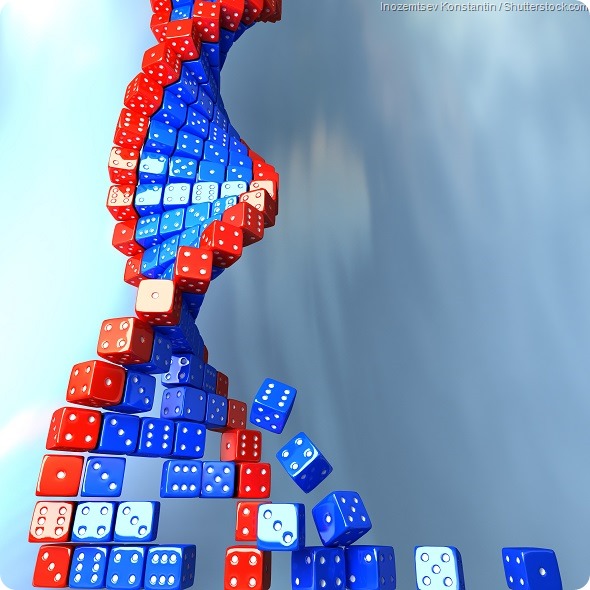A statistical model that measures the proportion of cancers that develop as a result of random mutations occurring during cell division was published in Science today. The model showed that the lifetime risk of many cancers is strongly correlated with the total number of divisions of normal self-renewing stem cells.
It is well-known that cancer can arise when tissue-specific stem cells make random mistakes, or mutations, when one DNA unit is incorrectly swapped for another during gene replication. The proportion of cancers arising as a result of these random mutations, however, was not known.

Scientists from the Johns Hopkins Kimmel Cancer Center, Cristian Tomasetti and Bert Vogelstein, searched scientific literature for the total number of divisions of stem cells among 31 tissue types during an average lifetime. They then compared these with lifetime incidences of cancer by tissue type. Statistical analyses showed that two-thirds of adult cancers arise due to random gene mutations. This indicates that in the majority of cases getting cancer is purely bad luck; the remaining third are also influenced by environmental and hereditary factors.
Professor Vogelstein explained:
All cancers are caused by a combination of bad luck, the environment and heredity, and we’ve created a model that may help quantify how much of these three factors contribute to cancer development.
The incidence of 22 different cancer types was predicted by the number of stem cell divisions in the relevant tissue, and thus could be largely explained by the “bad luck” factor of random DNA mutations. The other nine cancer types had incidences higher than predicted by random mutations, and so environmental or inherited factors must also play a role in their development.
Professor Vogelstein commented “We found that the types of cancer that had higher risk than predicted by the number of stem cell divisions were precisely the ones you’d expect, including lung cancer, which is linked to smoking; skin cancer, linked to sun exposure".
Adopting a poor lifestyles can add to the bad luck factor in the development of cancer. However, Professor Tomasetti warned that:
Changing our lifestyle and habits will be a huge help in preventing certain cancers, but this may not be as effective for a variety of others...We should focus more resources on finding ways to detect such cancers at early, curable stages.
The model does not currently include some common cancers, such as breast and prostate cancer, since reliable stem cell division rates were not available. The authors hope to refine their statistical model as more stem cell division rates are determined.